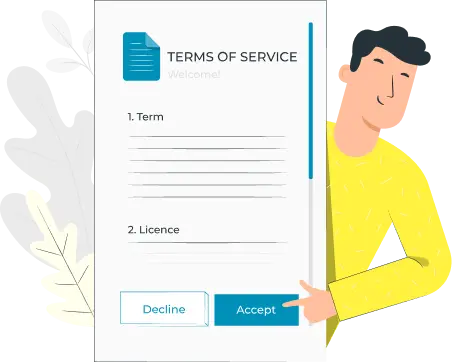The EFMA is a cornerstone of Singapore's regulatory framework governing the employment of foreign workers. It sets out the rules and procedures employers must adhere to when hiring individuals from overseas. The primary objectives of the EFMA are to regulate the inflow of foreign human resources, to ensure fair employment practices for both local and foreign workers, to protect the interests of Singapore's workforce.
The Employment of Foreign Manpower Act (EFMA) outlines various work pass categories in Singapore, each with specific eligibility criteria and conditions. Common work passes include the Employment Pass (EP), designed for foreign professionals, managers, and executives with a minimum salary and relevant qualifications; the S Pass, for mid-level skilled workers with a lower salary requirement, subject to quotas and levies; the Work Permit (WP), for semi-skilled or unskilled workers in industries like construction, manufacturing, and domestic work; and the EntrePass, for foreign entrepreneurs seeking to start and operate businesses in Singapore. Each pass has its requirements based on salary, qualifications, and industry-specific conditions.
The Employment of Foreign Manpower Act (EFMA) imposes a quota system that limits the number of foreign workers companies can hire in certain sectors. These quotas are designed to ensure a balanced workforce by capping the proportion of foreign employees relative to local workers. Sectors such as construction, manufacturing, and services have specific quota restrictions, requiring employers to manage their workforce composition carefully. The quota system helps to maintain job opportunities for local workers while allowing businesses to supplement their workforce with foreign talent where necessary.
The Fair Consideration Framework requires employers to demonstrate that they have considered Singaporean job applicants before hiring a foreign worker. This involves advertising job vacancies to local candidates and ensuring that Singaporeans are assessed fairly based on their qualifications and experience. The framework promotes local employment and prevents unfair hiring practices that might disadvantage Singaporean workers. Only after demonstrating that a suitable local candidate could not be found are employers allowed to hire a foreign worker under the relevant work pass.
The Employment of Foreign Manpower Act (EFMA) establishes minimum standards for employment conditions, ensuring that all workers, regardless of nationality, are treated fairly. These standards include regulations on salary, working hours, and rest days, which employers must adhere to when hiring local and foreign employees. The EFMA ensures that basic worker rights are protected, providing guidelines for acceptable employment practices and preventing exploitation. Employers must meet these minimum conditions to ensure a safe and fair working environment for all workers.
The Ministry of Manpower (MOM) is responsible for enforcing the Employment of Foreign Manpower Act (EFMA) and ensuring employers comply with its provisions. MOM has the authority to conduct inspections, investigate complaints, and act against employment law violations. Employers who fail to meet the requirements of the EFMA, such as adhering to fair employment practices or maintaining proper working conditions, can face penalties, including fines, suspension of work passes, or even legal action. This enforcement helps safeguard workers' rights and maintain fair labour practices in Singapore.
Understanding the Work Pass Framework is essential to familiarize yourself with the different Work Pass categories and their specific eligibility criteria. Each pass, such as the Employment Pass, S Pass, and Work Permit, is designed for various types of workers based on their skills, qualifications, and salary levels. Knowing the requirements for each category helps employers make informed decisions about hiring foreign talent and ensures compliance with Singapore's employment laws. This knowledge enables businesses to align their workforce needs with the correct work pass, avoiding potential legal or regulatory issues.
To ensure a smooth hiring process, applying for work passes early, well before the intended start date, is important. Starting the application process early helps avoid delays due to processing times, additional documentation requirements, or unexpected issues. By being proactive, employers can secure the necessary work passes on time, ensuring foreign employees can start work without unnecessary interruptions. Early applications also allow any necessary adjustments or clarifications, minimizing the risk of delays in workforce planning.
It is important to demonstrate fair consideration by documenting your efforts to assess Singaporean job applicants before offering a position to a foreign worker. This includes advertising the job opening to local candidates, conducting interviews, and evaluating their qualifications and experience fairly. Keeping detailed records of this process ensures compliance with the Fair Consideration Framework and shows a genuine commitment to prioritizing local talent. Proper documentation helps protect your company from potential disputes and provides transparency in the hiring process.
Adhering to the employment conditions set out in the Employment of Foreign Manpower Act (EFMA) is crucial for compliance. Employers must ensure they meet the minimum standards for salary, working hours, rest days, and other essential conditions for all employees, regardless of nationality. These guidelines help maintain fair treatment and a safe working environment for local and foreign workers. Compliance with these standards prevents legal issues and promotes a positive and ethical workplace culture.
Staying updated on changes to the Employment of Foreign Manpower Act (EFMA) is essential, as the regulations are subject to periodic revisions. Regularly review updates or amendments to ensure ongoing compliance with the latest requirements. Keeping informed about changes helps you adapt your practices, avoid potential legal issues, and effectively manage your workforce. Subscribing to updates from the Ministry of Manpower or consulting with legal experts can also help you stay current with regulatory developments.
Hiring foreign talent can bring immense value to organizations in Singapore. However, navigating the EFMA requires careful attention to detail and a commitment to compliance. By understanding the act's key provisions and adopting best practices, employers can successfully attract and retain top talent from around the world while upholding the principles of fair employment.
Disclaimer: This article and all information in it is provided for general informational purposes only. It does not, and is not intended to, constitute legal or tax advice. You should consult with a qualified legal or tax professional for advice regarding any legal or tax matter and prior to acting (or refraining from acting) on the basis of any information provided on this website.
Choose Glints TalentHub as your partner in Southeast Asia.
Building your Team in
Southeast Asia with Glints' EOR Service

Rapid
Team Setup
Launch Southeast Asian operations in a week for a seamless start

Full Suite of HR Offerings
Launch Southeast Asian operations in a week for a seamless start

Guaranteed 100% Compliance
Ensure total HR and legal compliance with expert local guidance

Dedicated & Immediate Support
Get quick, dedicated HR support within 24 hours